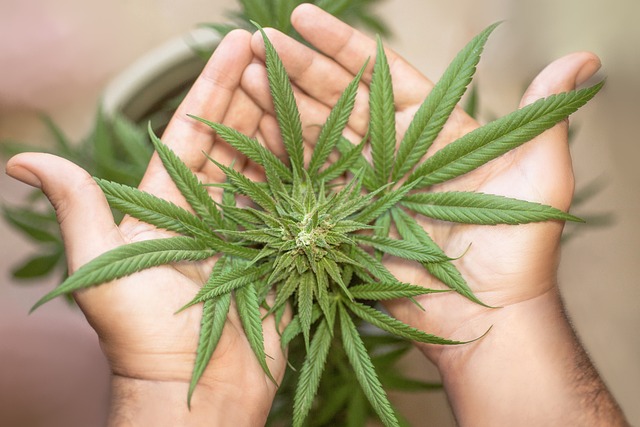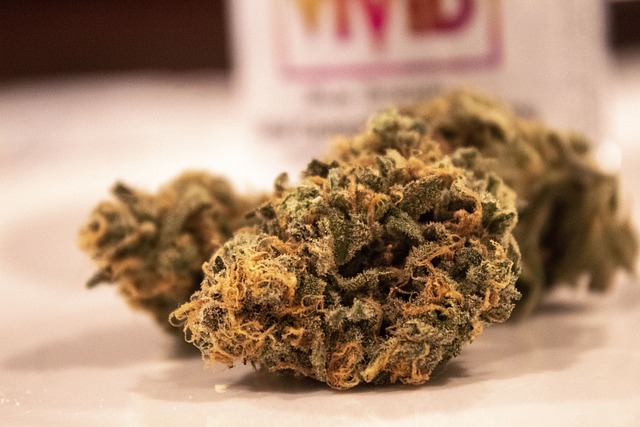THCA and CBD offer distinct, non-psychoactive options for regulating sleep without the mind-altering effects of THC. THCA appears to promote wakefulness and alertness during the day while supporting relaxation that may enhance nighttime sleep quality. This dual action could be particularly beneficial for individuals looking to align their circadian rhythms naturally. CBD, on the other hand, works by modulating receptor activity within the endocannabinoid system, potentially easing anxiety and pain, which often disrupt sleep. The article suggests that both compounds can play significant roles in improving sleep architecture and total sleep time, with THCA having sedative properties at higher doses and CBD offering daytime alertness without sedation. It's important to note that individual responses to these cannabinoids can vary due to genetic factors and personal endocannabinoid system profiles, thus emphasizing the necessity for personalized approaches. As such, THCA and CBD each have potential in the realm of sleep regulation, but further research is needed to fully understand their effects and optimize their use for individual needs. Users are advised to consult healthcare professionals before incorporating these compounds into their sleep routines.
Exploring the therapeutic properties of plant-derived compounds has garnered significant attention, particularly concerning their effects on sleep. This article delves into the distinct impacts of THCA (Tetrahydrocannabinolic Acid) and CBD (Cannabidiol) on restful sleep, a topic of growing interest among those seeking natural sleep aids. While both compounds hail from the cannabis sativa plant, their actions diverge notably when it comes to influencing sleep quality and patterns. As we unravel these effects, we’ll shed light on the science behind THCA vs CBD for sleep, offering insight into which may be more beneficial for your nightly repose. Join us as we navigate the nuances of these cannabinoids and their potential in enhancing sleep health.
- Unraveling the Effects of THCA Flower on Sleep: A Comparative Look with CBD
- Navigating the Nuances: How THCA and CBD Differentially Impact Sleep Quality and Patterns
Unraveling the Effects of THCA Flower on Sleep: A Comparative Look with CBD

Between THCA and CBD, both compounds within the cannabis sativa L. plant have unique interactions with our bodily systems, particularly when it comes to sleep regulation. Tetrahydrocannabinolic acid (THCA) is the non-psychoactive precursor to tetrahydrocannabinol (THC), and it’s gaining attention for its potential therapeutic properties, including its influence on sleep patterns. Unlike CBD, which interacts with the endocannabinoid system by influencing cannabinoid receptor activity without directly binding to them, THCA is believed to have a more direct effect on the body’s natural sleep-wake cycle. Research suggests that THCA may promote wakefulness and alertness during the day while facilitating relaxation and potentially improving sleep quality at night. This dual effect could make THCA a promising option for those looking to regulate their circadian rhythms without the psychoactive effects of THC.
When comparing THCA versus CBD for sleep, it’s important to consider the individual responses to each compound, as genetic factors and personal endocannabinoid system profiles can influence how one metabolizes and responds to cannabinoids. While both compounds have been associated with improved sleep outcomes, they do so in different ways. For instance, CBD has been widely reported to help alleviate anxiety and pain, which are common barriers to restful sleep. Conversely, THCA may offer sedative properties that can directly aid in the onset of sleep without the potential for psychoactive intoxication associated with higher doses of THC or other cannabinoids. As such, individuals seeking natural alternatives to pharmaceutical sleep aids may find value in exploring how THCA affects their sleep architecture and overall sleep quality, potentially offering a new avenue for non-psychoactive sleep support.
Navigating the Nuances: How THCA and CBD Differentially Impact Sleep Quality and Patterns

Navigating the intricate relationship between cannabinoids and sleep, THCA, or tetrahydrocannabinolic acid, and CBD, or cannabidiol, present distinct effects on sleep quality and patterns. Unlike its psychoactive counterpart THC, THCA does not induce intoxication but has been observed to exert a biphasic effect on the sleep-wake cycle. In low doses, THCA may promote wakefulness and alertness, potentially benefiting individuals experiencing excessive daytime sleepiness or needing a boost in concentration during the day. Conversely, higher doses of THCA have shown to exhibit sedative properties, which could be advantageous for those struggling with insomnia or seeking improved sleep quality at night.
CBD, on the other hand, is non-psychoactive and has been widely studied for its potential therapeutic benefits, including its impact on sleep. Research suggests that CBD may improve sleep architecture by increasing total sleep time and the duration of REM sleep. It also possesses anxiolytic properties that can alleviate anxiety, a common disruptor of sleep. Unlike THCA, CBD does not typically cause sedation at any dosage, making it a more versatile option for users looking to improve sleep quality without feeling drowsy during the day. Both THCA and CBD interact with the body’s endocannabinoid system, influencing sleep through different mechanisms, which underscores the importance of understanding these nuances when considering their use for sleep-related issues. Users should approach the use of these cannabinoids thoughtfully, as individual responses can vary significantly, and both THCA and CBD may interact with other medications or supplements. It is advisable to consult healthcare professionals before incorporating either into a wellness regimen focused on improving sleep quality and patterns.
In conclusion, the exploration of THCA flower’s effects on sleep in comparison to CBD offers a nuanced understanding of their differential impact on sleep quality and patterns. While both compounds hold promise for sleep disturbances, the evidence suggests that THCA may offer benefits particularly conducive to restorative sleep. As with any therapeutic intervention, individual responses will vary, underscoring the importance of personalized approaches to sleep health. For those interested in the potential sleep-promoting effects of cannabinoids, considering the research findings on THCA versus CBD for sleep presents a valuable area of study and application. Future research is anticipated to further elucidate the mechanisms behind these effects and guide best practices for their use.
